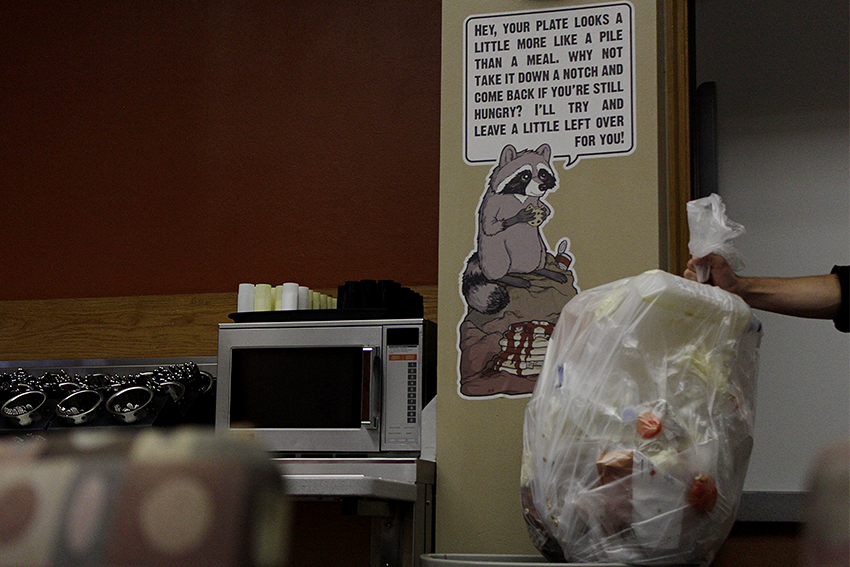It’s nonsensical to say on-campus students can cook for themselves when residence halls offer only a microwave and refrigerator. As a result, these students rely on the Division of Housing and Food Service (DHFS) to obtain most of their meals.
As consumers with few options, students have voiced complaints about DHFS, ranging from the lack of kosher and halal foods to inadequate dining hours. In addition, others have even attacked DHFS’ sustainable initiatives as they become more aware of environmental issues. Although some of these criticisms are understandable, DHFS deserves far more credit for their sustainable efforts with all things considered.
Operating a large-scale food operation is no easy task, and although DHFS has not achieved total sustainability, they’re doing well with limited resources.
According to 2015 data, DHFS allocates approximately 21.32 percent of its $7 million budget to locally raised, locally processed, organic, certified sustainable and Fair Trade foods. Although it would be nice to demand a larger portion of the budget for these foods, DHFS must strive to keep its costs reasonable for students. Sustainability involves balancing the needs of the environment and the economy with compromises along the way.
Darla Stewart, associate director of projects and procurement, said finding sustainable foods at a reasonable price is her team’s biggest challenge.
“We would not want to charge our students what it would cost to have a higher percentage of sustainable foods,” Stewart said. “If we were to say, ‘From now on we are going to buy only organic,’ we’d price ourselves out of the market.”
DHFS is able to purchase these foods without negatively impacting their budget through careful planning. Stewart said her team tries to find savings in other products they use to reinvest that money towards sustainable food items. In addition, her team tries to purchase directly from farmers to reduce excess fees from third parties.
“Those are some of the efforts we made, so that we can continue with our commitment to sustainability while maintaining our commitment to students that our food will be affordable,” Stewart said.
But perhaps more important to sustainability than sourcing is their treatment of uneaten food. Seven percent of all global carbon emissions is attributed to food waste, and DHFS has taken crucial steps to reduce this waste at producer and consumer levels.
Neil Kaufman, sustainability coordinator of DHFS, said his team constantly tries to reduce the inevitable amounts of waste produced by operating a food service.
“In an operation of our size, there is going to be some waste,” Kaufman said.
Part of these initiatives involve training employees how to utilize as much of a product as possible and donating leftover food to the Angel House Soup Kitchen when appropriate. In addition, DHFS launched the Clean Plate Club initiative in 2013 to discourage students from taking more food than they can eat.
Although DHFS always has room for improvement, their dedication to sustainability is not just an empty promise. DHFS will continue to reduce their environmental impacts, and students should cooperate to make our campus a greener place.
Chan is a environmental science and journalism freshman. He is a senior columnist. Follow him on Twitter @BenroyChan.





















